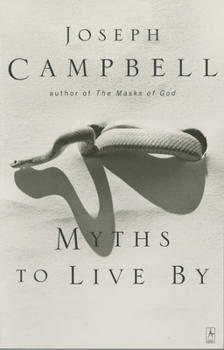By Michael Shook
Once one’s facade of innocence is peeled away – invariably in a painful manner – nothing ever again looks quite the same. This is a good thing. Among the many salutary effects I experienced as a result of my “fall to earth” was the collapse of the notion that humanity is perfectable.
Like so many idealists (especially those on the left, I have found), I held onto that belief through thick and thin, despite mountains of evidence to the contrary. I was convinced to my bones that if humans could just create the right situation for themselves – the right home life, the right work life, the right education, the right attitude toward … what? All things? All things! – then all things would of course be wonderful, and everyone would be happy.
Ah, but life – a pitiless teacher, thank God – again and again confronted me with a reality that imposed itself upon my ideas of how things ought to be, and in so doing, helped disabuse me of such ideas.
Lord, was I earnest! I was part of the legion that Joseph Campbell speaks of at the end of his lecture, regarding the myth of Kirttimukha, in “Myths to Live By.” That legion consists of those who “know how the universe could have been better than it is … without pain, without sorrow, without time [and so] without life … [and] those who think – as do many – ‘Let me first correct society, then get around to myself’ are barred from even the outer gate of the mansion of God’s peace. All societies are evil, sorrowful, inequitable; and so they will always be.”
“All societies are evil, sorrowful, inequitable; and so they will always be.” Is this pessimism, the cynical sneering of one who has a bitter heart? No. The United States, to use the best example at hand, is arguably the most open, most tolerant and equitable, most widely prosperous society in all of human history. People swarm here from every nation on earth, not a few risking their lives, simply for the opportunity to live and work in a country where they can bask in unprecedented freedom, and carve out a life – perhaps even become wealthy.
And yet, there is tremendous evil here in the form of violence, and I do not mean the kind of physical violence (shootings, assaults) that for most of us comes readily to mind, though it is part of the evil to which Campbell refers. That violence is real, of course, and pernicious, the result of an interplay between myriad social and economic disparities and, I believe, the collapse of community and the community virtues that accompany a sense of place.
No, the evil I am thinking of is older and deeper, and lies at the root of Campbell’s phrase above. It stems from the fact that, simply put, humans are animals. As animals, our physical needs must be met, the same as any other animal – clean air, clean water, nourishing food, adequate shelter, and a mate. This is obvious to all who consider it, even casually. And we tell ourselves that there is no evil in any of it. We’re just going about our lives, doing what we need to do to get along. What harm is there in that?
And it is true that, if we went about acquiring these things, as do the deer, the owls, the coyotes, the bees and the fishes, and all other animals, then indeed we would not only be innocent of any evil-doing, we would be plainly, simply, purely innocent, as babies are innocent. But our human lives are not so simple as that – and again, this is obvious to any who consider it.
“Life eats life.” All living things act from and with power, and the more power I have, the closer I am to getting the requisite necessities. Oh certainly, when things are good and there’s plenty to go around, people can afford to be, and are, magnanimous, and love of fellow humans is broadly cast. And this is done sincerely and with good intentions, and is, as it ought to be, engaged in and heartily commended.
But because we can reason, and (more importantly) imagine, we look into the future and, uncertain of what it holds (because we are far from omniscient), we fear a shortage of the necessities. And so we hoard, we stockpile, we amass as much wealth as possible, hoping that when things go sideways, as they inevitably will, we will ride out the storm, if not in luxury, at least in plenitude, and will thus maintain our lives, along with our very important social status.
To accomplish the above, we engage in all sorts of dubious behaviour, inflicting violence incessantly. Not to our own, of course. But to some other someone or someones who are faceless, unknown, with no way of intruding on our day-to-day activities. This is done unwittingly, and not so much unconsciously as thoughtlessly. That is, we rarely ever consider it, which is utterly normal, and does not reflect some inherent evilness on our parts. It is more that we are busy with our lives, getting through the day. There are kids to get off to school, meals to plan, cook, and clean up after, and careers that consume most of our time and energy through the week.
Whatever is left over is what gets allotted to spouse, friends, and (hopefully) some recreation. In the midst of the whirlwind that is day-to-day life, there is often little time to ponder who, what, or where might be suffering some ill as a result of our actions … (to be continued).

